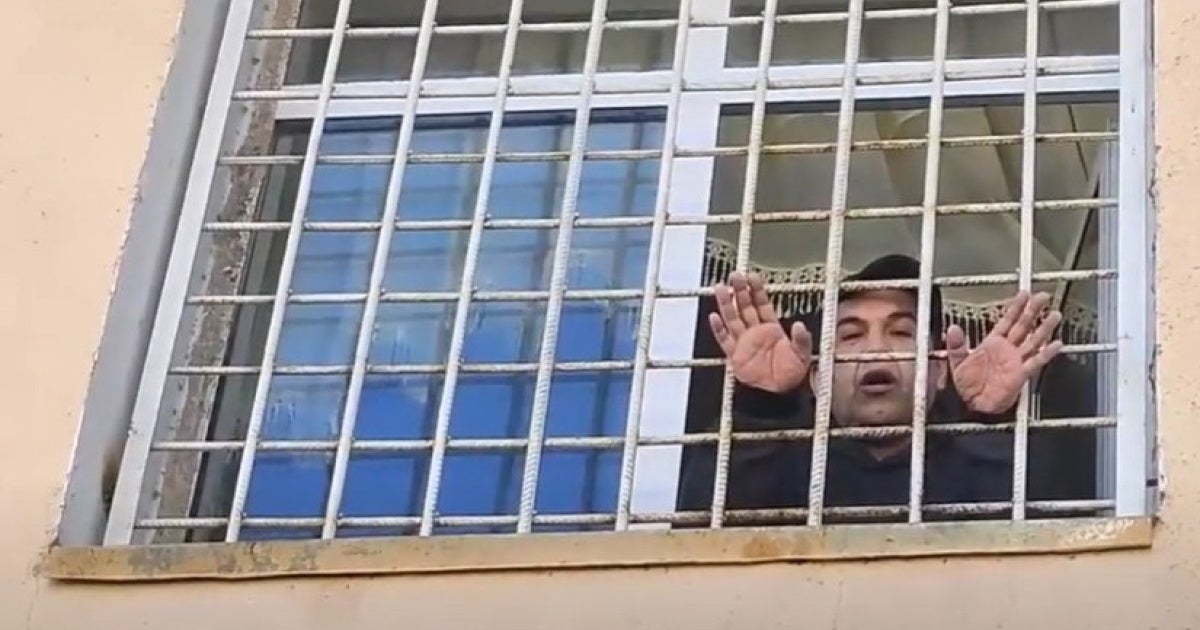Uzbekistan: Release Blogger From Psychiatric Detention
The Uzbekistan government should immediately release and compensate the blogger and activist Valijon Kalonov who has been forcibly detained in a psychiatric hospital since December 2021, the Uzbek Forum for Human Rights and Human Rights Watch said today.
On February 28, 2025, the United Nations Working Group on Arbitrary Detention (WGAD) issued an opinion regarding the legality of Kalonov's detention under international human rights law. It found that he had been "arbitrarily detained" and urged the government "to release him immediately and accord him an enforceable right to compensation and other reparations."
"Valijon Kalonov's forced psychiatric detention is nothing more than retaliation for his criticism of government policies," said Umida Niyazova, director of the Uzbek Forum for Human Rights. "Kalonov did not call for violence, threaten violence, or say or do anything that posed a threat to anyone."
Kalonov is a 55-year-old blogger from Jizzakh city, in Central Uzbekistan, who has criticized the government of Uzbekistan and in 2021 called for a boycott of the presidential elections. He had also spoken out against China's discrimination against the Uyghurs.
In August 2021, the authorities placed him under arrest and charged him with "threatening public safety" and "insulting the president online" on the basis of statements he posted on social media. The authorities alleged the statements contained ideas of "religious fundamentalism," as well as public insult and slander against Uzbekistan's president.
Kalonov was placed in a psychiatric hospital in the Jizzakh region after a court, in December 2021, ruled that he could not be held criminally liable and should undergo compulsory psychiatric treatment. Those who know Kalonov say he does not have any mental health disability, which also would not be justifiable grounds on which to detain him.
In its 2021 ruling, the court cited a state-commissioned psychiatric assessment of Kalonov, which had concluded that "Kalonov Valijon suffers from a chronic mental illness in the form of obsessive-compulsive disorder (OCD) and a violation of logical thinking. At the time of the crime, he did not understand and was not fully aware of his actions. The crime committed by Kalonov, his mental state and illness can be dangerous for society."
This is not the first time the Uzbek authorities have used bogus psychiatric assessments and forced psychiatric treatment to silence and discredit critics, the rights groups said. Kalonov's detention follows a pattern of similar cases in which activists have been falsely diagnosed with mental illness based on state-ordered forensic examinations.
The veteran rights activist Elena Urlaeva was forcibly detained in a psychiatric hospital five times between 2001 and 2016. While she was in the hospital, officials tied her to her bed for hours and forcibly administered psychotropic drugs, which have had a lasting physical and emotional impact.
Michael Perlin, professor emeritus at New York Law School, is founding director of the International Mental Disability Law Reform Project. He was co-petitioner of the complaint filed to the UN working group and told the rights groups that "[f]orced psychiatric detention is a barbaric abuse of the medical profession that dates back to Soviet times. In circumstances such as those in this case, it is a violation of the prohibition on improper treatment and should be immediately prohibited." He also underscored that "[b]ecause forced psychiatric treatment is often administered in institutions far from any third-party oversight, patients, whether they have a mental disability or not, are extremely vulnerable to abuse."
In its February 28 opinion, the UN working group concluded that Kalonov was arbitrarily detained in violation of articles 2, 7, and 19 of the Universal Declaration of Human Rights and articles 2, 19, and 26 of the International Covenant on Civil and Political Rights. The working group urged the Government of Uzbekistan "to ensure a full and independent investigation into the circumstances surrounding Kalonov's arbitrary deprivation of liberty" and to take appropriate measures against those responsible for the violation of his rights.
Uzbekistan's international partners should urge Uzbekistan to immediately release Kalonov and provide reparations, in accordance with the working group's decision. They should also call on Uzbekistan to implement fully another working group decision in February 2023 concerning the blogger Otabek Sattoriy. In that decision, the working group concluded that "the basis for the arrest and subsequent detention of Mr. Sattoriy was in fact his exercise of freedom of expression" and to release him immediately and provide reparations. In February 2024, Sattoriy was granted early release from prison, but he has not been given any reparations.
The government of Uzbekistan celebrated the recent election of its National Center for Human Rights director, Akmal Saidov, to the UN Human Rights Committee, as an expert in his individual capacity. Yet Uzbekistan has a demonstrably poor track record when it comes to implementing decisions of UN human rights bodies, including the Working Group on Arbitrary Detention. The Uzbekistan government should respect all UN human rights bodies and experts and act in accordance with their decisions, the groups said.
"The government of Uzbekistan needs to release Kalonov immediately, but they also owe him reparations and should investigate how he ended up in psychiatric detention in the first place," said Mihra Rittmann, senior Central Asia researcher at Human Rights Watch. "Kalonov shouldn't have to spend another day unlawfully and abusively locked up."
https://www.hrw.org/news/2025/03/31/uzbekistan-free-blogger-forced-psychiatric-detention
View Original | AusPol.co Disclaimer
